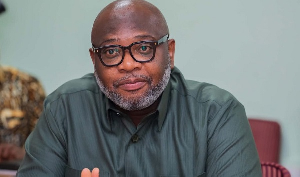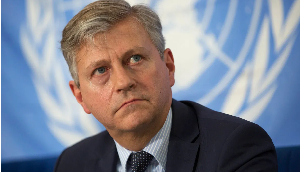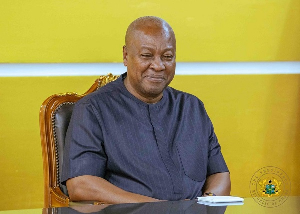Correspondence from Eastern Region
A British pharmaceutical firm, GlaxoSmithKline (GSK), has signed a product transfer agreement for malaria vaccine with an Indian firm, Bharat Biotech (BBIL), to boost the vaccine access in the whole of Africa.
GSK signed the agreement in collaboration with PATH, a global entity dedicated to ending health inequity.
The agreement will facilitate seamless transfer of manufacturing of the protein part of the malaria vaccine from GSK to BBIL and to enhance efforts at eliminating malaria which is the leading killer of African children and pregnant mothers.
In an interview with Ghanaweb, John Bawa, PATH’s Africa Lead for Vaccine Implementation, explained that the new malaria vaccine production transfer deal is part of the World Health Organization (WHO) backed initiative to enhance long-term access to the vaccine in high-burden African nations.
He echoed that this new agreement would expand the on-going Malaria Vaccine Implementation Programme (MVIP) in Ghana, Kenya and Malawi to cover the whole of Africa, stressing that GSK already donated 10 million doses for the pilot which will officially end in 2023.
“The burden of malaria disease is heavier in Africa than other parts of the world. The mortality and morbidity of the disease, about 95% of them comes from Africa. So, any intervention that will go to accelerate the pace at which malaria should be controlled and eliminated in Africa is a very welcome news.
“The malaria vaccine that was developed by GSK in partnership with PATH since 2001 is currently being piloted in Ghana, Kenya and Malawi under the Malaria Vaccine Implementation Programme (MVIP).
“So far, 500,000 children have received the first dose of the malaria vaccine in the three participating African countries since 2019 when piloting commenced.
“The major impact is the assurance that the vaccine is going to be available into the future should WHO make a positive recommendation for a wider use after the pilot. What we all expect is that positive recommendations will be made by WHO. Once that is made, other new countries will come in,” he said.
In Ghana, 35 districts in seven regions are participating in the MVIP pilot and according to John Bawa, about 75% performance rate has been recorded indicating impressive work done.
“We think that this is impressive. Of course, there are still a few communities that are not being reached. They are not being reached not because they decide not to take the malaria vaccine but because of various challenges in accessing those hard-to-reach areas such as the Oti Region and the islands in the Afram Plains areas.
“We are working with the Ministry of Health to look at how we can overcome these challenges. Government is doing its bit by building CHPS compounds and connecting roads to those areas. The Drone delivery system is also helping and playing a key role in ensuring that those hard-to-reach areas access the vaccine,” he said.
He urged Ghanaians not to have any fear in the malaria vaccine since it was developed for Africa and by Africans and that “Since we started piloting about a year ago, we have not seen and there has not been any safety concerns raised with any child that has received the vaccine. Parents still have confidence in the vaccine and they still come back to receive the subsequent doses.”
John Bawa also urged that there is the need for African governments, donors, other partners and the general public to realise that “as much as all the attention is on managing COVID-19, we should also not lose sight that malaria is still there. Last year malaria killed about 400,000 people with about 95% of them coming from Africa. So, it is still deadly and we need to make sure that the progress made so far in the malaria fight, we make efforts to sustain it.”
Health News of Saturday, 30 January 2021
Source: www.ghanaweb.com













